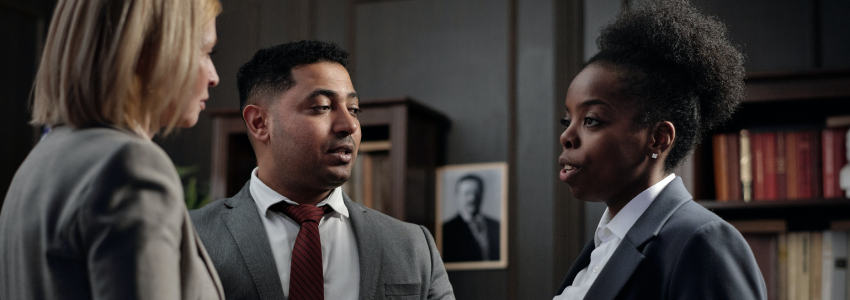“If it doesn’t challenge you, it won’t change you.”
– Fred DeVito
One of the leaders I have coached for years recently shared with me, “I’ve lost my edge.” She went on to explain how she was avoiding difficult discussions and felt defensive when peers confronted her on how she showed up in meetings. She was no longer having fun, and everyone knew it. Consequently, her team distanced themselves from her, not wanting to experience one of her famed outbursts. Her peers no longer felt safe, and she was cut off from invaluable personal feedback. Would you have been courageous enough to share honest feedback with her?
According to Gallup, more than 8-in-10 employees worldwide are not engaged or are actively disengaged at work, despite companies throwing more resources at this opportunity than ever before. Most people are looking for an empathetic boss who will mentor, advise, and lend a helping hand. Every leader has a choice: practice being a fierce player-coach, or risk losing key members of your team. Team cohesion and candor are now prerequisites for creating an environment where teams thrive. Are you known as a courageous coach?
7-PILLARS OF COURAGEOUS COACHING
1. EMOTIONAL INTELLIGENCE. Did you know that 80% of career success is rooted in one’s emotional intelligence? Our ability to self-regulate emotions when under pressure accompanied by the skill of reading the room sets us apart. The role of a coach is to assist partners in expanding their self-awareness, self-management, social awareness, and relationship or conflict management skills. A skilled coach helps us see ourselves clearly.
2. 3-WAY FEEDBACK. In healthy cultures, teammates practice being open to feedback at every level of the organization. Associates coach their bosses, peers share lateral feedback, and senior leaders candidly convey their unfiltered thoughts with everyone in the ranks. Does your organization embrace coaching upward to senior leadership, horizontally to cross functional peers, and downward to younger associates? Are you creating and protecting a feedback culture?
3. FACILITATION. The most effective coaches are not heavy handed with their counsel; they’re Socratic, nondirective, and facilitative in their approach. Coaches are catalysts for expanding our capacity, building confidence, and strengthening team resilience. They assist others in identifying personal goals and uncovering friction or mental roadblocks hindering the realization of those dreams. Have you mastered the art of facilitation?
4. PERSONAL STORY. To be an effective coach you must understand an individual’s personal story, motivations, and aspirations. The fears, triggers, and past experiences of a teammate influences their mindset and relationships today. Our past story shapes everything and everyone we touch. Do you invest enough time listening to your partner’s stories and sharing your own narrative?
5. DEFINING SUCCESS. Expectation setting is essential for the long-term health of most relationships and a coaching relationship is no different. Astute coaches are crystal clear on what an associate is trying to achieve and proficient at discovering hidden roadblocks impeding their momentum. Do you allow others to personally define their definition of success, or do you talk too much during your coaching meetings?
6. EMOTIONAL SAFETY. The coach’s role is to create a safe environment for the associate to honestly assess their mindset, game-plan, and limiting beliefs hindering progress. The associate owns the plan and must remain open and committed to collaborating with the coach on the mental preparation necessary to achieve their outcomes. Every coaching discussion is a customized safe experience, where the associate assesses their journey, and the coach creates a trusting atmosphere for reflection and self-critique.
7. DELIBERATE PRACTICE. Real change only occurs through consistent, deliberate practice. A skilled coach calmly corrects, teaches, and models new skills in real-time during practice sessions with their teammates. When we practice at the edge of our skills, we expand to new levels because we are out of our comfort zone. Monica Aldama, Head Coach of the 14-time National Champion Navarro College Cheer team, reminds us that great coaches constantly “raise the bar” and encourage deliberate practice. Monica’s philosophy of practice is “You keep going until you get it right. And then you keep going until you can’t get it wrong.” Fearless coaches help us confront the lies we tell ourselves and assist us in calibrating the right steps to build positive momentum. Tomorrow’s leaders understand that courageous, transparent discussions are essential in building healthy, holistic organizations.
WHAT NOW?
When does a lack of courageous coaching show up; what does it cost you, and what one thing can you practice today to demonstrate fearless, and holistic performance coaching?
“Life begins at the end of your comfort zone.”
– Neale Donald Walsh

